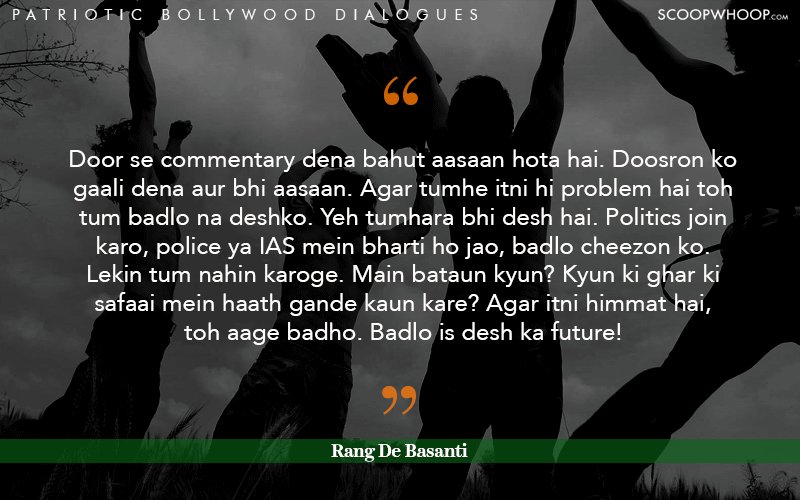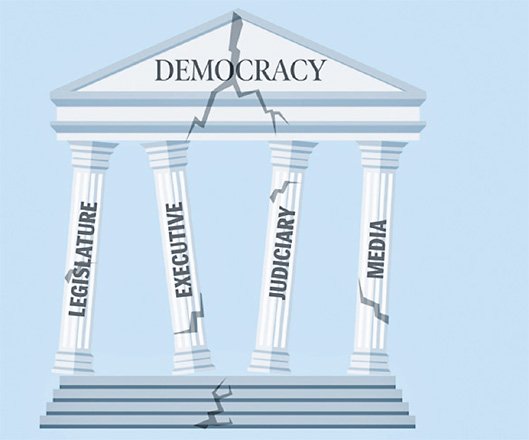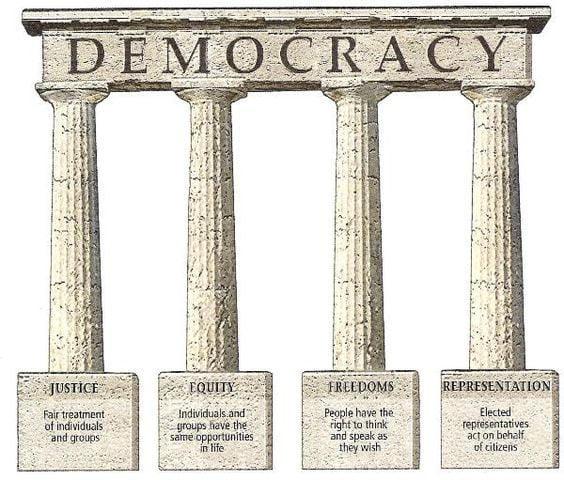3 May 2020
International Significance
The United Nations General Assembly declared May 3 to be World Press Freedom Day observed to raise awareness of the importance of freedom of the press and remind governments of their duty to respect and uphold the right to freedom of expression enshrined under Article 19 of the 1948 Universal Declaration of Human Rights and marking the anniversary of the Windhoek Declaration, a statement of free press principles put together by African newspaper journalists in Windhoek in 1991.

Personal Significance
On 3 May 2002, an Indian Air Force (IAF) Mikoyan-Gurevich MiG-21 crashed into an office building in Jalandhar, Punjab, India, killing eight and injuring seventeen people on the ground. The pilot, who ejected from the aircraft, survived. A number of passers-by were also injured as they attempted to rescue people trapped in the buildings.
The safety record of the IAF’s MiG-21s has raised concern in the Indian Parliament and media, leading to the aircraft sometimes being referred to in the IAF as a “flying coffin”. One source estimates that in the nine years from 1993 to 2002, the IAF lost over 100 pilots in 283 accidents. During its service life, the IAF has lost at least 116 aircraft to crashes (not including those lost in combat), with 81 of those occurring since 1990.
Perfect movie: Rang De Basanti
While it’s a tall order, and nothing can be perfectly perfect – there exist very few films which score so highly on re-watchability / repeatability, humour, emotions and still connect with multiple sections of the audience with a powerful message.
Yes, there are wrong messages of anarchy / lawlessness / fascism which can be taken by an impressionable audience, but then again, you cannot please everyone – else better not to do anything at all.
This was one of those rare films I watched without seeing the trailer so there was no burden of expectations or pre-conceived notions of how it will / should be – and yet all the chapters of the film were thoroughly enjoyable and unique in their format.
Be the documentary format of an outsider (a British filmmaker who discovers young Indians more western, and highly ignorant about the Indian freedom struggle than her!), depicting parallels between how each generation faces / keeps mum about their problems, and how the fight to change the system in turn changes you irreversibly.
Of course, the characters were unique and each one had a substantial back-story and cultural / emotional baggage of their own which makes the climax even more hard-hitting and I hope our ‘instant-gratification, instant-distraction’ generation never forgets the core message of the film. There’s something in it for everyone, and as I was watching the film for the first time, I was amazed by the energy and freshness of the concept amongst so many ‘Bhagat Singh’ movies rushing to be the first entrants – content is king, and if one can capture the soul of the freedom fighters’ messages, they don’t need to commercialise the patriotic fervour. (Although this film did release on Republic Day in 2006. One can never really remove commerce from art, else its impact and eventual reach is substantially reduced. Sigh – that’s another blog post)
Remembering some epic scenes from the movie, and summarising a few personal learnings for the next generation who would not watch this movie in theatres / television – but probably on Netflix or whatever subliminal streaming platform rules the focus of the Generation Z / Generation Alpha – in the hope that they are also rebels with a cause. 🙂
Innocence / immaturity

-> You’re only young once. 🙂 have fun, make memories – but not at the cost of your parents’ finances or well-being
-> One day, school / college will end – the friendships you make there won’t if you choose wisely and give generously to the relationships
-> It’s very easy to be ‘cool’ / ‘popular’ – it’s extremely difficult to be ‘impactful’ / ‘well-respected’
Choices

-> You can never have it all – money, fame, work-life balance, meaningful relationships, purpose, satisfaction
-> So choose which battles to fight, which ones to avoid – everyone has the same 24 hours in a day, doesn’t matter where you come from, matters where you end up
-> At some point of time in life, your parents, your background, your status – they cease to be THE reason why you are who you are, and it’s really your actions / inactions that define you
Revolution

-> Impossible peaceful revolutions ultimately lead to inevitable violent revolutions, the great revolutions aren’t started by people who are utterly down and out, without hope and vision, instead they take place when people begin to live a little better — and when they see how much yet remains to be achieved
-> Rebel against the archaic / outdated / evil ‘thought-processes’ or root cause of the problem, toppling a system or replacing a government is a superficial band-aid over a cancerous tumour
-> Although people and events may pass on, or cease to exist in recent memory of the populace – their values (or anti-values), philosophy, teachings remain in us and determine our thinking, our conduct, our attitude to others
Pillars of Democracy
The plain fact is that democratic government — which is systemically better than all other forms of government — inevitably panders to narrow but powerful interests to gather votes. In today’s world of ‘agile methodologies’, seventy years is more than a long enough sprint / marathon that our nation has run to retrospect whether we are headed in the right direction or a soft / hard pivot is needed to course correct. The Constituent Assembly adopted the Constitution on 26 November 1949, it is time that we, the people of India ask if the three pillars – legislature, executive and judiciary – under the Constitution have held their own, worked as B.R. Ambedkar and the other wise men and women of the Constituent Assembly would have wanted them to. They wanted them to work cohesively, but they also wanted each of these three wings to function independently, with clearly defined separation of powers.

Legislature
Although not the most powerful but the most important wing under the Constitution has degenerated into an arena where politicians work more to safeguard the interests of their parties than for those who elect them. Healthy and well-informed debates, the oxygen required for any democratic institution to function, is something that is rarely witnessed in our Parliament and the state legislatures.
Our parliamentary standing committees also work on party lines. The important issue of conflict of interest – MPs with financial interests often continue to remain members of standing committees whose reports can have a bearing on their business – is not even debated now. We seem to have simply given up.
Executive
This pillar was to ensure proper implementation of the laws passed by the legislature and also govern. The famed steel frame – as Sardar Patel called the Indian Administrative Service (IAS) – is now more a skeletal framework that is falling apart.
Bureaucrats, who were supposed to uphold the rule of the law and keep the politicians in check, have now joined hands with them, refusing to stand up (for the majority) to the questionable demands of their political masters. There are multiple instances of the police going rogue, the Income Tax department being seen as one of the most corrupt departments, the “independent” investigating agencies like the CBI and ED are towing the ideological lines of the ruling party. The lure of post-retirement jobs seems to drive the in-the-job decisions of our bureaucrats.
Judiciary
This was supposed to be the strongest pillar. But owing to a plethora of factors, what we now have are judges, coming under the stranglehold of the government, or trying to take over the roles not assigned to them under the Constitution.
Our judges seem to be focussed all the time to weigh in on the issues that are best left to either the legislature or the executive, but not well-equipped for upholding the rights of the citizens and a speedy justice is never the common scenario unfortunately.
Media
I am sure even if none of you had a view about the above 3 pillars – this is one all the folks across the political spectrum will agree with. There’s no concept called a neutral, unbiased press anymore.
Corporatization of media houses, political dominance, religious dominance, media trials and the emergence of social media makes this industry prioritise speed over depth, sensationalism over neutrality and ‘breaking news bytes’ over in-depth analyses.
Certain issues are made to look by media in a certain way to benefit a certain group and manipulate the public opinion. The impact of media (and social media platforms) on an individual’s opinion, ownership of media houses, and the interactions over these platforms – there is a real risk that we will slide into a vicious cycle.
Is there hope?
It is natural to become cynical at times, thinking that none of us can really help or bring about significant change, that we Indians will remain ‘like that only’, and the present is one of those times. But try to shrug yourself out of that and at least act in whichever way you can.

So is there no way of coming back? Yes, there is. There can be a fifth pillar, or rather the foundation of our democracy who unfortunately is the most downtrodden of all. That pillar is you, me, us. The Indian citizen, who has been gloriously featured on the front page of India’s leading daily newspaper for over five decades. The “common man” is always silent, except when it is election time. So let your “voice” be heard, not just once in every five years and listen to others’ “voices” too however contrasting, or foolish they might appear to be. 🙂
Hum honge kaamyaab, ek din. (We shall overcome, someday)
If you can or wish to, donate for India’s fight against COVID-19
“I for India” is India’s largest fundraiser concert, to help raise funds for the India COVID Response Fund (ICRF). The concert will feature India’s leading actors, musicians, singers, sportspersons and industrialists – all coming together to support COVID relief work, on 3rd May 2020 at 7.30pm IST.
Let’s unitedly fight against COVID-19.
Facebook: https://www.facebook.com/donate/878714602647054/10220650793475518/
To donate using UPI, please visit: https://pages.razorpay.com/IforIndia
—– Frequently Asked Questions——-
HOW MUCH OF MY DONATION GOES TOWARDS THE CAUSE?
100% of the funds raised on Facebook go to GiveIndia. GiveIndia is working with 100+ trusted non-profits who are working on the ground to fight the pandemic.
WILL MY DONATION BE MATCHED?
Yes, every rupee you donate will be doubled by one of our generous donors Action Covid-19 Team, A.T.E Chandra Foundation, Bill & Melinda Gates Foundation, Omidyar Network India and Rohini Nilekani Philanthropies, so that every donation you make has double the impact!
WHICH MODES OF PAYMENT CAN I USE TO MAKE A DONATION?
All Debit/Credit Cards on Visa/Mastercard/Rupay are accepted.